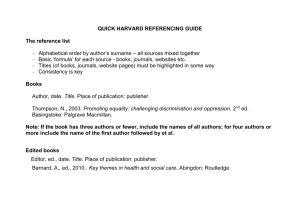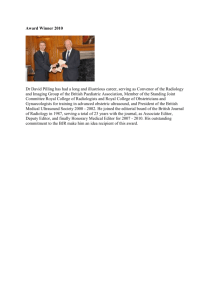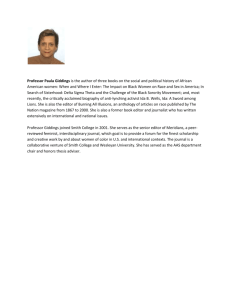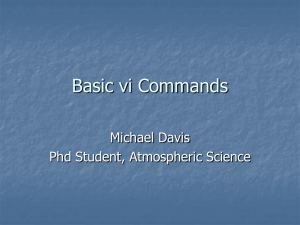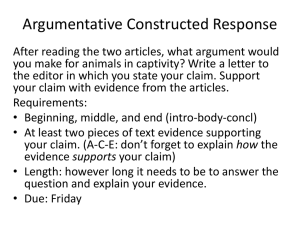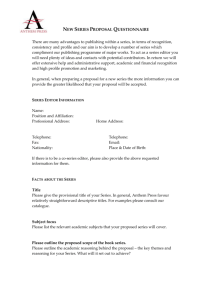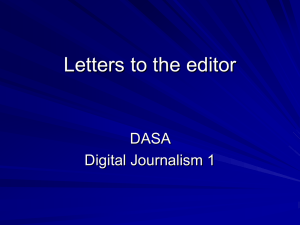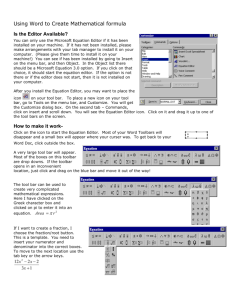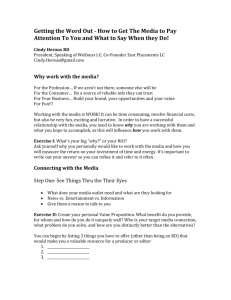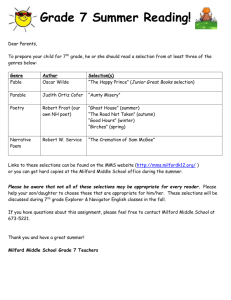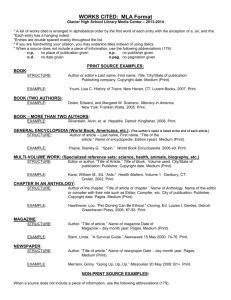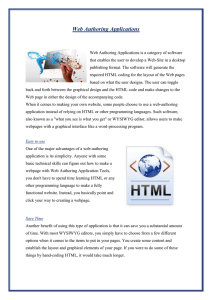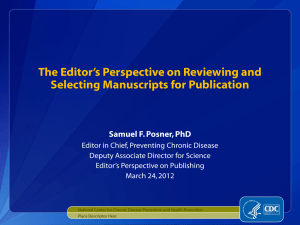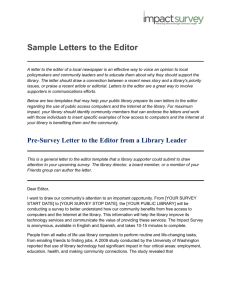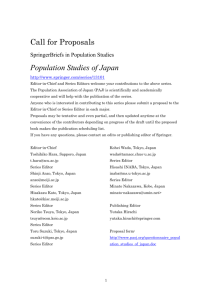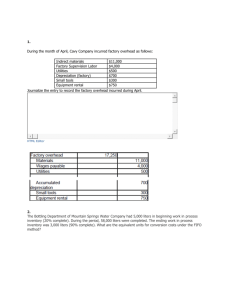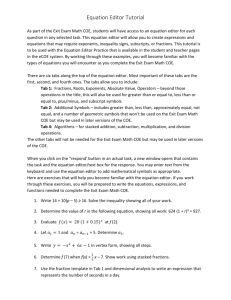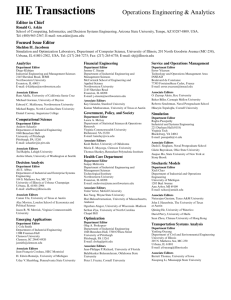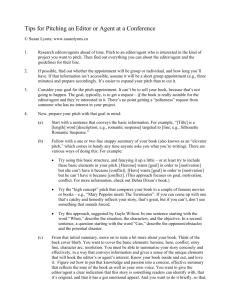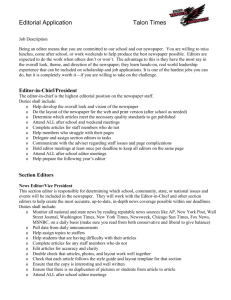Writing a Winning Book Proposal A Communications Program
advertisement
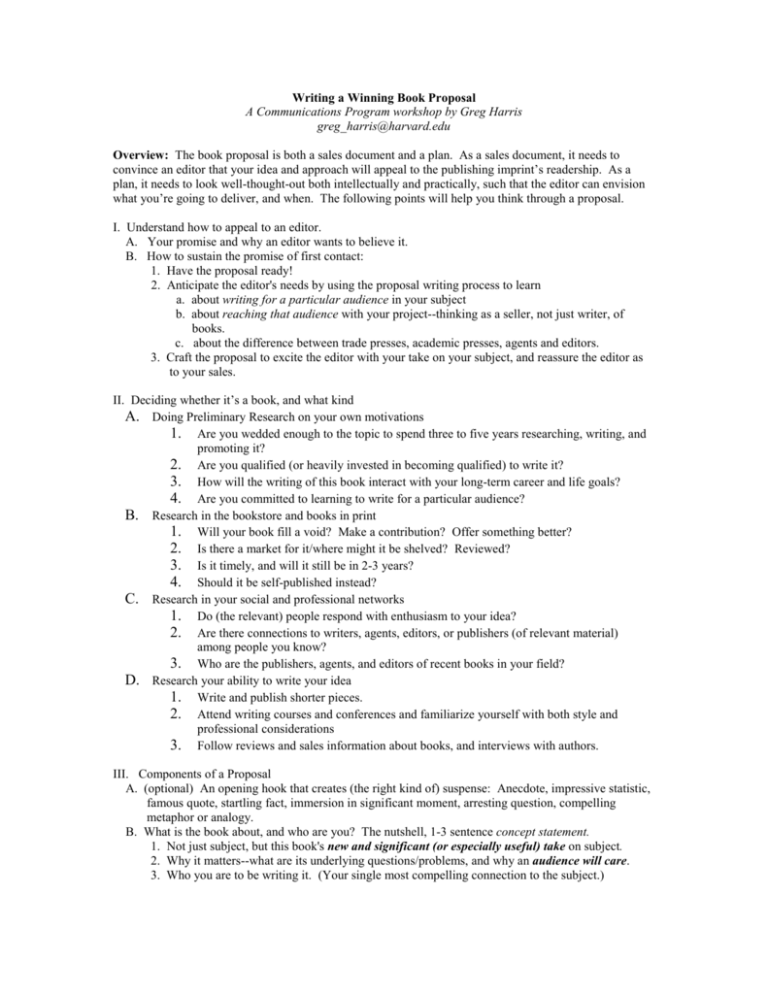
Writing a Winning Book Proposal A Communications Program workshop by Greg Harris greg_harris@harvard.edu Overview: The book proposal is both a sales document and a plan. As a sales document, it needs to convince an editor that your idea and approach will appeal to the publishing imprint’s readership. As a plan, it needs to look well-thought-out both intellectually and practically, such that the editor can envision what you’re going to deliver, and when. The following points will help you think through a proposal. I. Understand how to appeal to an editor. A. Your promise and why an editor wants to believe it. B. How to sustain the promise of first contact: 1. Have the proposal ready! 2. Anticipate the editor's needs by using the proposal writing process to learn a. about writing for a particular audience in your subject b. about reaching that audience with your project--thinking as a seller, not just writer, of books. c. about the difference between trade presses, academic presses, agents and editors. 3. Craft the proposal to excite the editor with your take on your subject, and reassure the editor as to your sales. II. Deciding whether it’s a book, and what kind A. Doing Preliminary Research on your own motivations 1. Are you wedded enough to the topic to spend three to five years researching, writing, and promoting it? 2. Are you qualified (or heavily invested in becoming qualified) to write it? 3. How will the writing of this book interact with your long-term career and life goals? 4. Are you committed to learning to write for a particular audience? B. Research in the bookstore and books in print 1. Will your book fill a void? Make a contribution? Offer something better? 2. Is there a market for it/where might it be shelved? Reviewed? 3. Is it timely, and will it still be in 2-3 years? 4. Should it be self-published instead? C. Research in your social and professional networks 1. Do (the relevant) people respond with enthusiasm to your idea? 2. Are there connections to writers, agents, editors, or publishers (of relevant material) among people you know? 3. Who are the publishers, agents, and editors of recent books in your field? D. Research your ability to write your idea 1. Write and publish shorter pieces. 2. Attend writing courses and conferences and familiarize yourself with both style and professional considerations 3. Follow reviews and sales information about books, and interviews with authors. III. Components of a Proposal A. (optional) An opening hook that creates (the right kind of) suspense: Anecdote, impressive statistic, famous quote, startling fact, immersion in significant moment, arresting question, compelling metaphor or analogy. B. What is the book about, and who are you? The nutshell, 1-3 sentence concept statement. 1. Not just subject, but this book's new and significant (or especially useful) take on subject. 2. Why it matters--what are its underlying questions/problems, and why an audience will care. 3. Who you are to be writing it. (Your single most compelling connection to the subject.) C. "About the Book"--a fuller (1-2 page) statement about the book, emphasizing what's exciting about the book: 1. the problems/questions it solves 2. the greatest benefits it provides readers 3. the newness and uniqueness of its approach 4. why now is such a good time for it 5. the specific power of its stories and information and examples 6. Production Details (if this is longer than a sentence or two, make it a separate section toward end of proposal) a. Anticipated length b. Delivery date (usual range: from 3-15 months from receipt of advance) c. Special formatting considerations: sidebars, photographs, illustrations D. "About the Author"--a fuller (half page or more) statement about you, emphasizing why you're the one to write the book: 1. Professional experience, credentials, evidence of commitment or presence in a field. 2. Prior publications and other evidence of writing/communications competence. 3. Public platforms from which you've spoken, or can speak, on subject. E. "About the Market"--a lengthy discussion of the conditions that will make your book a success. 1. Evidence of an Audience for book a. demographics, quantifications of memberships in relevant associations, societal trends b. prior publications (your own and others') and media attention to subject (with sales figures if possible) 2. A discussion of other books on subject (6-10 examples) showing how your book complements or supersedes them 3. Evidence of your being able to effectively promote the book a. Your ability to get blurbs from well-known figures (in field) b. Your connectedness to organizations professionally (or recreationally) interested in the book's subject c. Your ongoing presenting and teaching in the field d. Experience, connections for commenting in the mass media F. Table of Contents, and brief chapter summaries in active, exciting language. G. Sample Chapter(s) 1. Length: average 1-3 chapters, 30-60 pages. 2. Choose material that is not merely introductory, and showcases your original thinking and strongest writing. 3. Do not have to be real, final-form chapters; can be constructed of most compelling materials IV. Respecting your own purposes, processes, and limits. VI. Resources A. Recommended books on Writing Proposals: Thinking Like Your Editor, Susan Rabiner & Alfred Fortunato (Norton). Nonfiction Book Proposals Anybody Can Write, Elizabeth Lyon (Perigee). B. Research resources: 1. Subject area specialists, reference librarians 2. On publishing trends: a. Publisher’s Weekly, www.publishersweekly.com b. Publisher’s Marketplace: http://www.publishersmarketplace.com c. Bookwire (books in print), www.bookwire.com d. Workshops and articles on writing for the media: www.mediabistro.com e. Books in Print, Books Out of Print, Forthcoming Books—publ. by R.R. Bowker. 3. On promotion: a. John Kremer, 1001 Ways to Market Your Books b. Marilyn and Tom Ross, Jump Start Your Book Sales 4. Finding an agent and/or editor: a. Writer’s Market, www.writersmarket.com b. Literary Marketplace, www.literarymarketplace.com c. Book Wire, www.bookwire.com d. Publisher’s Marketplace, www.publishersmarketplace.com 5. Improving Your Writing a. HKS classes, Harvard Extension, Grub Street (www.grubstreet.org ), MediaBistro b. Joseph Williams, Style: The Basics of Clarity and Grace c. (for popular writing) Arthur Plotnik, Spunk & Bite , Cheney Getting the Words Right

